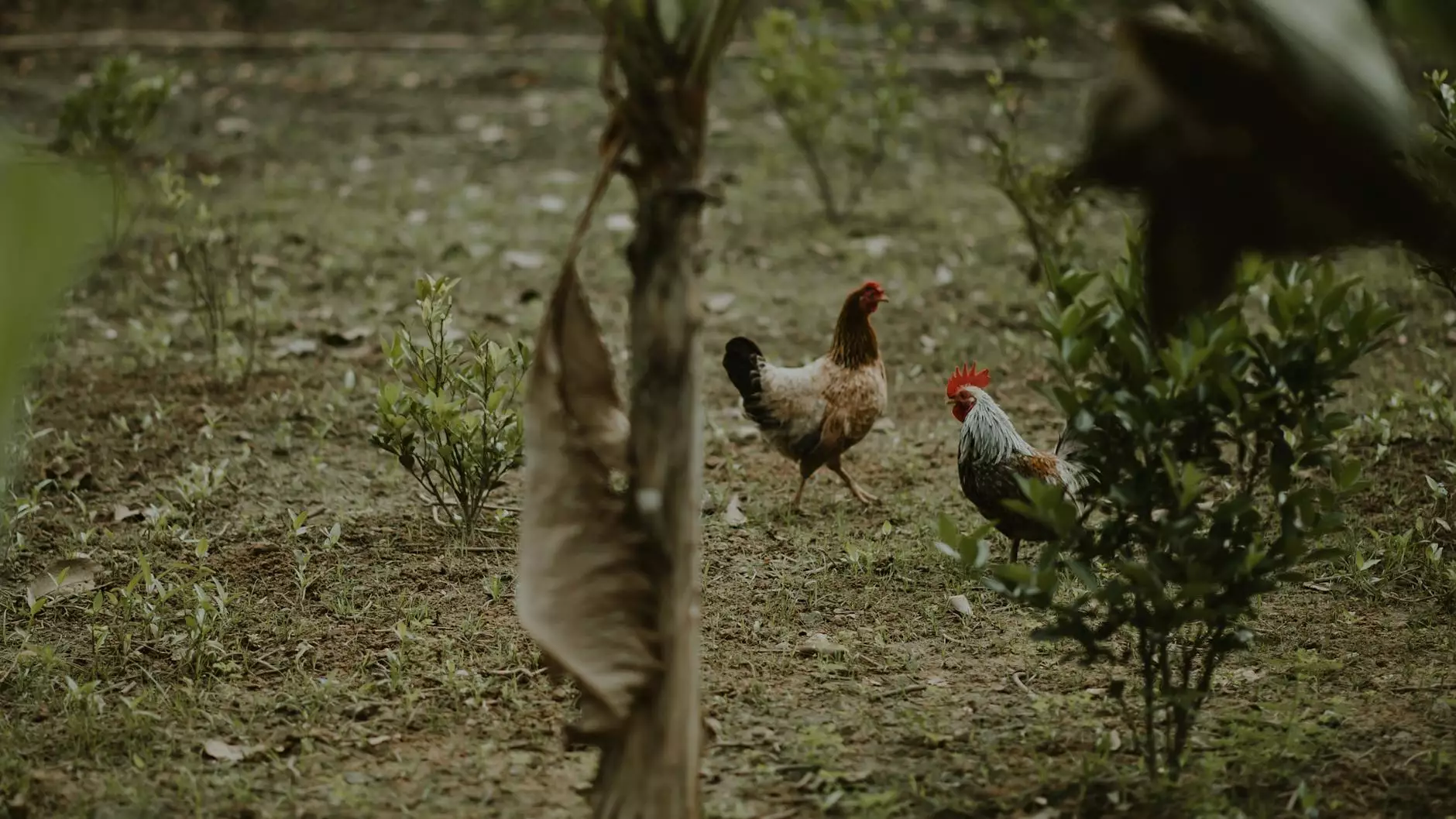Exploring the World of Frozen Chicken Manufacturers

The global demand for poultry has seen a tremendous rise, making the role of frozen chicken manufacturers more vital than ever. As consumers increasingly seek convenient and versatile food options, frozen chicken products provide a perfect solution. This article delves into the intricacies of the frozen chicken industry, with a particular focus on Brazilian poultry exporters and their impact on the market.
The Importance of Frozen Chicken in Modern Diets
Frozen chicken has become a staple in many households, offering a range of benefits:
- Convenience: Frozen chicken can be stored for long periods, making it easy for consumers to stock up without the worry of spoilage.
- Versatility: It serves as an adaptable ingredient in various recipes, from soups and stews to barbecues and stir-fries.
- Nutritional Value: When frozen promptly after processing, chicken retains its nutritional content, providing a healthy protein source.
- Cost-Effectiveness: Bulk purchases of frozen chicken often result in savings for consumers and businesses alike.
Understanding the Frozen Chicken Supply Chain
The journey of frozen chicken begins at the farm, where poultry is raised under strict regulations regarding health and safety. After the chickens are processed, they are swiftly frozen to preserve quality and flavor.
Key Players in the Supply Chain
The supply chain can be broken down into several key stakeholders:
- Poultry Farmers: They raise and manage livestock, ensuring the chickens meet quality standards.
- Processors: These facilities are where chickens are slaughtered, processed, and packaged. They play a critical role in ensuring food safety.
- Frozen Chicken Manufacturers: Companies that transform processed chicken into frozen products, ready for distribution. They are crucial in maintaining product quality from farm to freezer.
- Distributors: They handle the logistics of getting frozen chicken to retailers and food service establishments.
How Frozen Chicken Manufacturers Operate
To succeed in the competitive marketplace, frozen chicken manufacturers implement various strategies:
Quality Control
Quality control is paramount in the poultry industry. Manufacturers utilize rigorous testing throughout the supply chain to ensure safety and adherence to health regulations:
- Microbiological Testing: Regular testing for harmful bacteria such as Salmonella and Campylobacter.
- Process Control: Monitoring temperature during freezing and storage to prevent spoilage.
- Taste Testing: Regular evaluations conducted by trained panels to ensure flavor consistency.
Sustainability Practices
In recent years, there has been a significant push towards sustainability. Frozen chicken manufacturers are adopting eco-friendly practices:
- Efficient Water Usage: Implementing systems to reduce water consumption during processing.
- Waste Reduction: Developing strategies to minimize waste generated in the supply chain.
- Animal Welfare: Adhering to strict welfare standards during farming and processing to ensure ethical practices.
Brazilian Poultry Exporters: A Case Study
Brazil is one of the world's leading producers and exporters of poultry, particularly frozen chicken. The country's favorable climate, vast agricultural land, and advanced farming techniques contribute significantly to its poultry industry's success.
Regulatory Framework
Brazilian poultry exporters operate under a robust regulatory framework that ensures compliance with international standards. The following regulations are crucial:
- Health and Safety Regulations: Strict adherence to hygiene and food safety protocols to prevent contamination.
- Export Legislation: Guidelines ensuring products meet the standards of importing countries.
- Certification Programs: Certifications such as ISO and HACCP validate the quality and safety of products.
Global Reach and Market Demand
The popularity of Brazilian frozen chicken has soared, particularly in markets such as the United States, Europe, and the Middle East. The reasons behind this growing demand include:
- High-Quality Products: Brazilian poultry is renowned for its quality, delicious taste, and adherence to sustainability practices.
- Competitive Pricing: Cost-effective production processes allow for competitive pricing in global markets.
- Trade Agreements: Brazil benefits from various trade agreements that facilitate easier access to international markets.
Challenges Facing Frozen Chicken Manufacturers
Despite the growth and success, frozen chicken manufacturers, including those in Brazil, face several challenges:
Market Volatility
The poultry market can be unpredictable, influenced by factors such as:
- Global Economic Conditions: Economic downturns can lead to decreased consumer spending and lower demand for frozen products.
- Trade Restrictions: Tariffs and trade disputes can hinder export opportunities.
Regulatory Changes
Changes in food safety regulations can impact operations. Manufacturers must stay current with evolving guidelines to ensure compliance and avoid penalties.
Future Trends in the Frozen Chicken Industry
As consumer preferences evolve, several trends are shaping the future of frozen chicken manufacturing:
Health-Conscious Products
With an increased focus on health, manufacturers are responding by developing healthier frozen chicken options, such as:
- Organic Chicken: Raising chickens without antibiotics or hormones.
- Value-Added Products: Offering pre-marinated or pre-cooked frozen chicken for added convenience.
Technology Integration
Adopting technology in processing and supply chain management will enhance efficiency and transparency. Innovations include:
- Blockchain Technology: To track product origins and improve traceability.
- Smart Processing Equipment: Automating processing and ensuring consistent quality control.
Growing E-commerce Demand
The rise of online grocery shopping is changing how consumers purchase frozen chicken. Manufacturers are increasingly collaborating with e-commerce platforms to reach a broader audience.
Conclusion
The landscape of frozen chicken manufacturers, particularly in Brazil, stands as a testament to the growth and evolution of the poultry industry. With robust supply chains, stringent quality control, and a focus on sustainability, these manufacturers are well-positioned to meet the ever-changing demands of consumers around the world.
As we move forward, the challenges and opportunities presented in the industry will continue to unfold. By embracing innovation and sustainability, frozen chicken manufacturers can ensure their success in a vibrant and competitive market.









